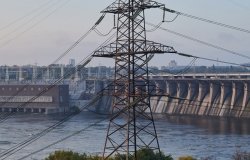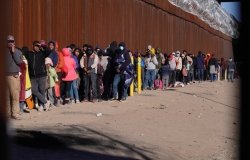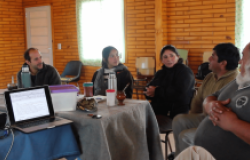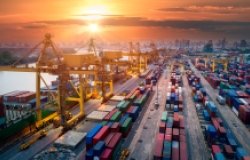A Conversation on Climate Change with Brazilian Expert Luiz Gylvan Meira Filho
On Wednesday, March 28, the Brazil Institute invites Dr. Luiz Gylvan Meira Filho to discuss climate change.
Overview
The commitment the international community made in Copenhagen in December 2009 to limit climate change to a maximum of two degrees Celsius by the end of the century implies limits to global emissions by 2050, and has brought physical constraints to the decision-making process in this area. These constraints will be very much in the minds of the heads government when they meet this June in Rio at the United Nations Conference on Sustainable Development. Luiz Gylvan Meira Filho, a leading Brazilian climatologist and former co-chairman of the Science Working Group of the Intergovernmental Panel on Climate Change (IPCC) says emissions limits can be “easily established,” as long as governments agree that nations have differentiated responsibilities.
On March 28th, Dr. Meira addressed the issue at a seminar hosted by the Brazil Institute. He spoke on possible criteria to make such differentiation, as a means to facilitate the necessary global engagement in the mitigation of climate change. A former head of the Department of Meteorology at Brazil’s National Institute of Space Research and founder of its Center for Weather Prediction and Climate Studies (CPTEC), the country’s weather and climate modeling facility, Dr. Meira argues that a certain amount of geo-engineering is not a question of choice, but of necessity as a result of emissions that have already occurred.
Speakers
Hosted By

Brazil Institute
The Brazil Institute—the only country-specific policy institution focused on Brazil in Washington—works to foster understanding of Brazil’s complex reality and to support more consequential relations between Brazilian and US institutions in all sectors. The Brazil Institute plays this role by producing independent research and programs that bridge the gap between scholarship and policy, and by serving as a crossroads for leading policymakers, scholars and private sector representatives who are committed to addressing Brazil’s challenges and opportunities. Read more

Environmental Change and Security Program
The Environmental Change and Security Program (ECSP) explores the connections between environmental change, health, and population dynamics and their links to conflict, human insecurity, and foreign policy. Read more
Thank you for your interest in this event. Please send any feedback or questions to our Events staff.











